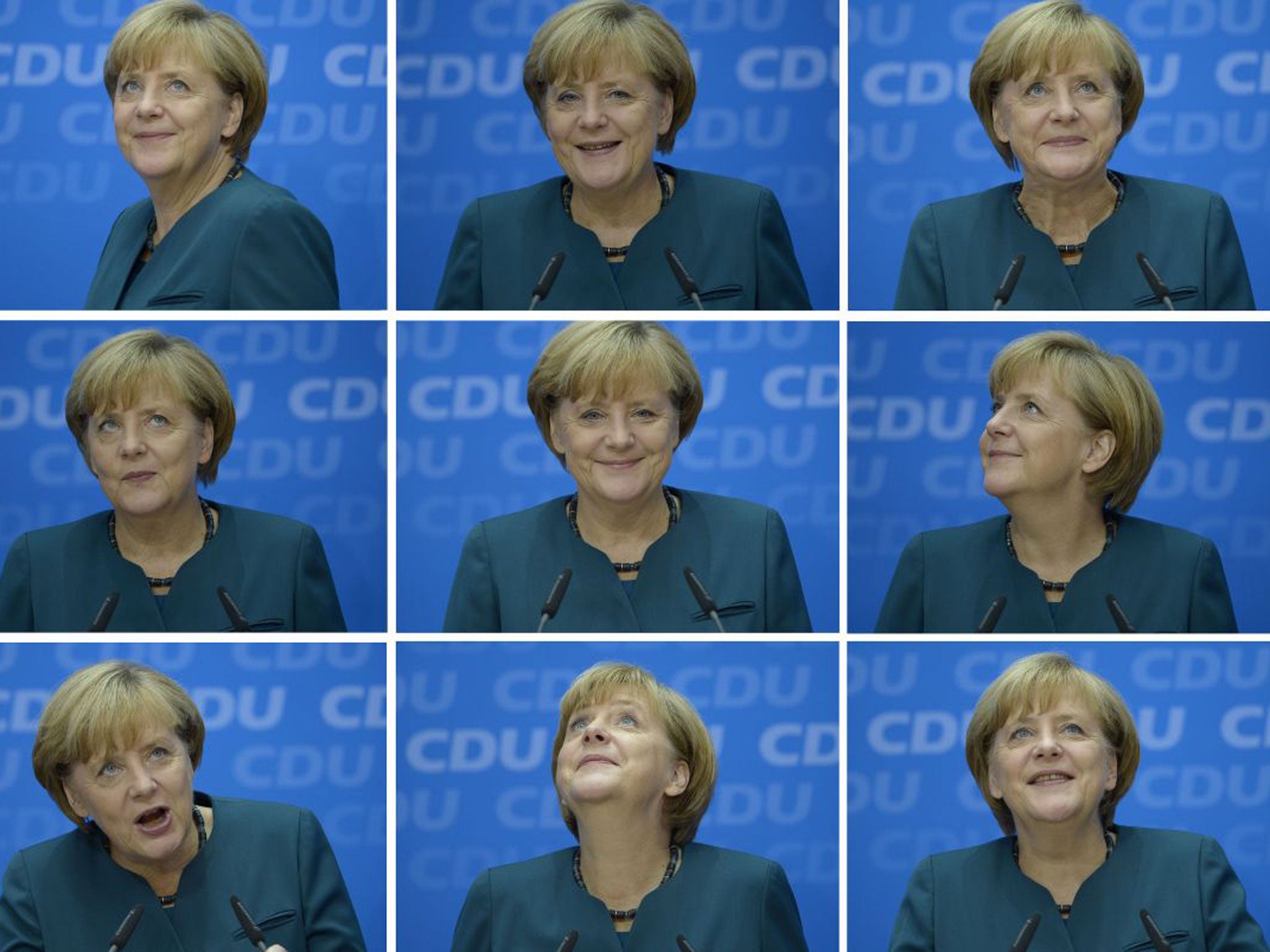A stunning victory – but Merkel will keep calm and carry on
It's unlikely the Chancellor will throw caution to the wind in her third term


Your support helps us to tell the story
From reproductive rights to climate change to Big Tech, The Independent is on the ground when the story is developing. Whether it's investigating the financials of Elon Musk's pro-Trump PAC or producing our latest documentary, 'The A Word', which shines a light on the American women fighting for reproductive rights, we know how important it is to parse out the facts from the messaging.
At such a critical moment in US history, we need reporters on the ground. Your donation allows us to keep sending journalists to speak to both sides of the story.
The Independent is trusted by Americans across the entire political spectrum. And unlike many other quality news outlets, we choose not to lock Americans out of our reporting and analysis with paywalls. We believe quality journalism should be available to everyone, paid for by those who can afford it.
Your support makes all the difference.Angela Merkel’s resounding victory demolished a slew of supposedly accepted truths. It showed that a regional crisis need not be fatal for an incumbent national leader. It showed that the political left does not automatically benefit when the free market runs into difficulty. And it showed that, even in this media age, competence can trump charisma. It also reminded anyone who might be tempted to discount Margaret Thatcher’s third election victory that female leaders are not an electoral liability. It depends on the woman – as it does on the man.
The figures illustrate just how much of a triumph this was for Ms Merkel. Her CDU-CSU alliance won 41.5 per cent of the vote – up more than 7 per cent from four years before. Her coalition partner, the FDP, lost almost two-thirds of its 2009 vote. It could also be argued that without the intervention of the new anti-euro party, Alternativ fuer Deutschland, the centre right would have easily won an overall majority; and she would have been the first Chancellor in such a commanding position since Konrad Adenauer in 1957.
This, though, would have placed Ms Merkel in the adversarial position she has never really seemed to like. One reason why, despite doom-laden forecasts, the left-right “grand” coalition she formed after her first victory in 2005 was so successful was that the compromise it entailed suited her. Many Germans hope that she will enter such a coalition again. A “grand” coalition would, of course, produce a perverse outcome, as it would inevitably mean that her pragmatic conservatism is diluted. In effect, she would be made to pay a price for the FDP’s electoral failure, which does not seem fair.
It also means that policy could shift in ways that bring it more into sympathy with the French and Italian governments and slightly less inclined to give David Cameron the time of day. Germany’s new anti-euro party only just failed to get into Parliament, but the two-thirds of the Bundestag that a “grand coalition” would command, would give Ms Merkel the luxury of ignoring Eurosceptics.
Some have suggested that a third-term Merkel might behave like a second-term American president, throwing (some) caution to the wind and embarking on a few bold new departures. This seems highly unlikely, even if Ms Merkel does not feel constrained, as she is almost bound to be, by the requirements of a coalition with the centre left. Not only is she highly cautious but she pledged in her victory speech that she would treat her new mandate with care and a sense of responsibility. The old Merkel then, whom Germans, especially it should perhaps be said, female German voters, have come to respect.
A further consequence can perhaps be predicted if she does form a “grand coalition”. The scale of her victory means she and her centre-right bloc will exert far greater influence in the coalition than they did the first time. The SPD will not be on almost equal terms. As the junior partner, it could risk suffering the same electoral curse as the FDP this time. This would hand the centre right, led by Ms Merkel or perhaps her successor, an advantage going into the election of 2018.
Join our commenting forum
Join thought-provoking conversations, follow other Independent readers and see their replies
Comments